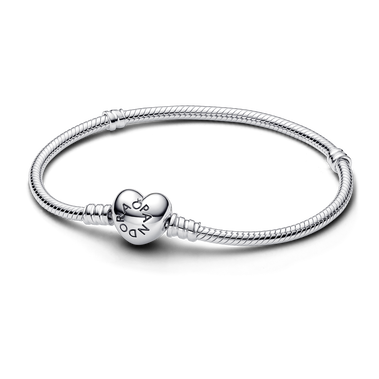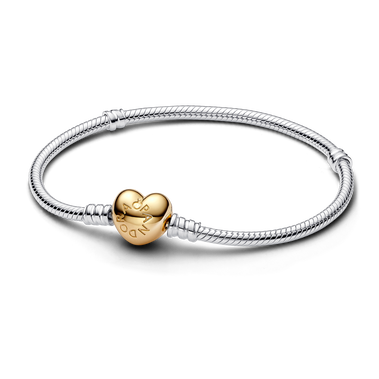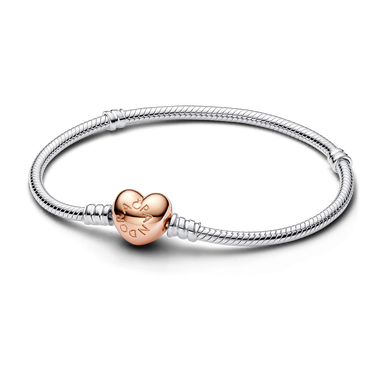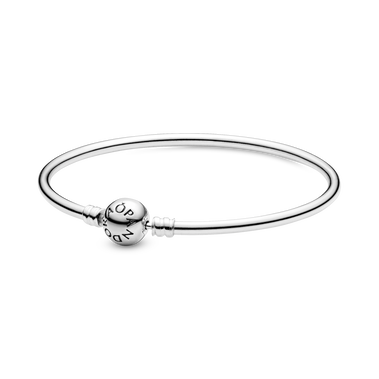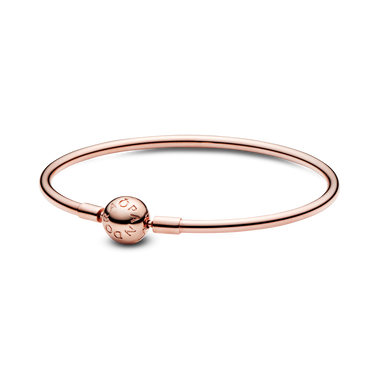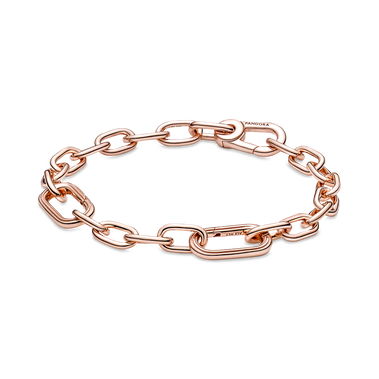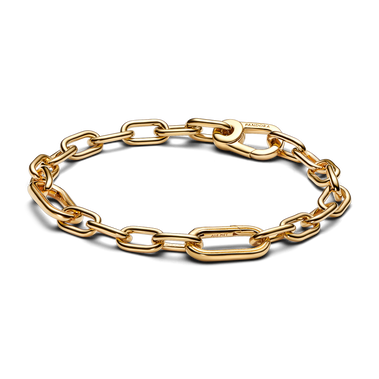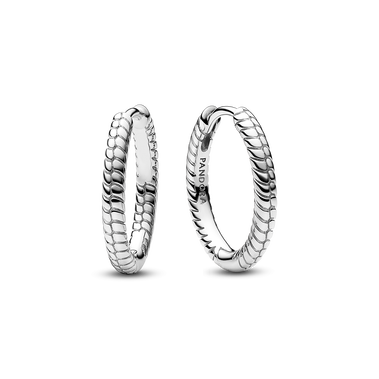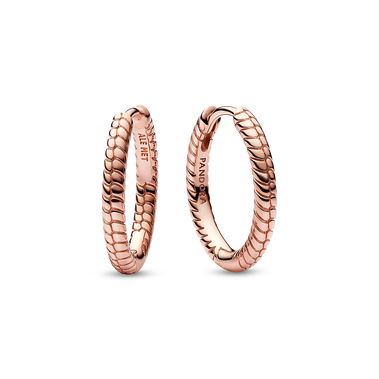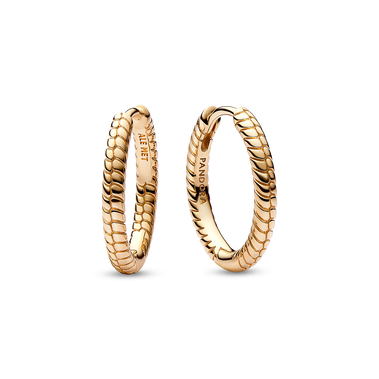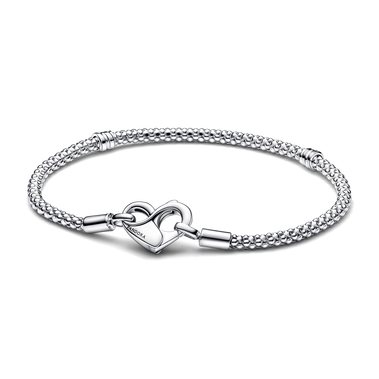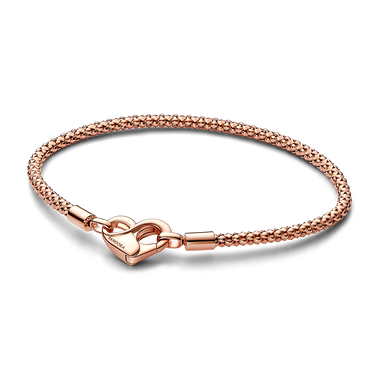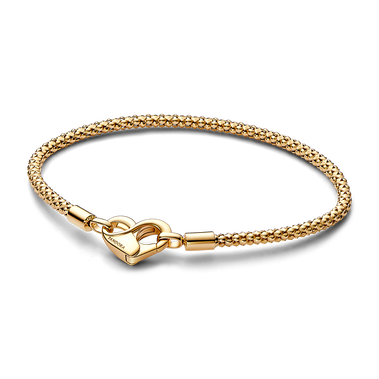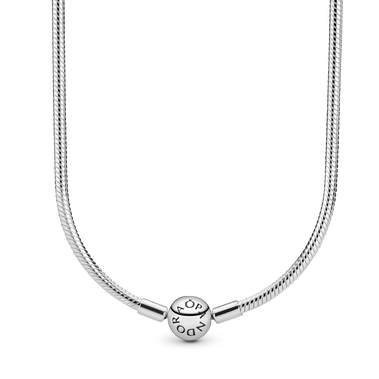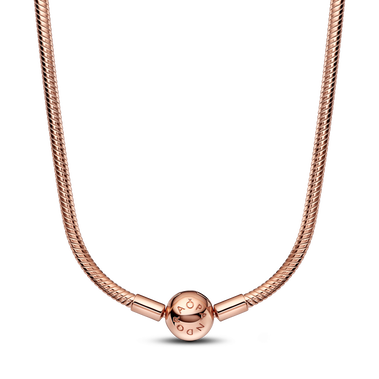Wondering what synthetic corundum is and how we use it in Pandora jewellery? You may have heard of synthetic ruby and sapphire, but how do they differ from their natural counterparts?
We’re here to answer all your burning questions about these man-made stones, so you can learn all about how they differ from their naturally occurring varieties. We’ll cover all the need-to-knows, from how it’s made to the different types used in Pandora jewellery.
What is synthetic corundum?
Synthetic corundum is an artificial stone that exactly replicates the naturally formed corundum. A corundum is basically an extremely hard, crystallised mineral. In fact, it’s one of the hardest stones on earth (second to only the diamond) and is known for its toughness.
Natural corundum is the mineral that rubies and sapphires are made from. Synthetic corundum is a synthetic version of this material, which means that it has the same chemical composition, crystal structure and physical properties as its natural counterpart. The blue type is a synthetic sapphire, and the red is a synthetic ruby.
From synthetic corundum to cubic zirconia, we work with lots of different lab-grown stones to create our jewellery designs.
What is synthetic corundum used for?
From everyday objects like watches to protective windows of grocery shop scanners, synthetic corundum has a wide range of uses, and it can be found all around.
Artificial corundum is also used for making synthetic sapphires and rubies, which is why it’s also used for making colourful jewellery, including necklaces, bracelets, rings, charms and more.


How is synthetic corundum made?
Our synthetic corundum is made in laboratories using the flame fusion method, which was first completed by the French chemist Auguste Verneuil in 1902. This method creates stones with the same properties and chemical structures as natural rubies and sapphires. The artificial and natural stones are so similar, you’d need a strong magnifying glass to be able to tell them apart.
What are the different types of synthetic corundum?
At Pandora, we use two different types of synthetic corundum: synthetic ruby and synthetic sapphire. Rated nine on the Mohs hardness scale, they’re among the hardest stones on earth, which means they’re very durable and therefore perfect for making jewellery that lasts.
Synthetic sapphire
At Pandora, we use synthetic sapphire in many of our popular designs. We use three different kinds of synthetic sapphires:
Synthetic sapphire: Classic blue stone that comes to mind when you think of a sapphire.
Synthetic pink sapphire: Colourful take on sapphire stones.
Synthetic light pink sapphire: More subtle stone tone perfect for minimalist jewellery looks.

Sapphire facts
Traditionally, natural sapphires represent wisdom and purity. In ancient Greece and Rome, they were even thought to have protective powers against envy and harm. Ancient Persians thought the Earth rested on a giant sapphire, and its reflection made the sky blue. While synthetic sapphire doesn’t have the same sense of history and romance as the real deal, they have fewer flaws and are fully traceable.
Synthetic ruby
Synthetic ruby is the red variety of corundum. The traces of chromium created during the flame fusion method give synthetic ruby its distinctive red colour. We use two types at Pandora:
Synthetic ruby: Timeless deep red stone we all know and love.
Golden red synthetic ruby: Vibrant red stone with a warm undertone.
Ruby facts
Historically, the fiery shades of natural ruby have caught the attention of many kings and emperors. It was once thought its vibrant colour came from a flame inside the stone, and some even believed rubies came from Mars.
Synthetic rubies are now gifted as a symbol of courage, passion and desire. That’s why ruby jewellery is often gifted to partners to symbolise love.

Pandora synthetic corundum jewellery
From rings to charms and bracelets, many Pandora jewellery styles feature synthetic corundum stones to add a pop of colour. From adding accents with red ruby tones to creating tonal looks with pink sapphires, many Pandora pieces feature synthetic stones that speak to every style.
As with all of our jewellery, we use high-quality stones that pass the test of time. Whether you’re looking for a treat for yourself that represents your birth month or a gift for someone close, our jewellery with coloured stones ticks all the boxes.
